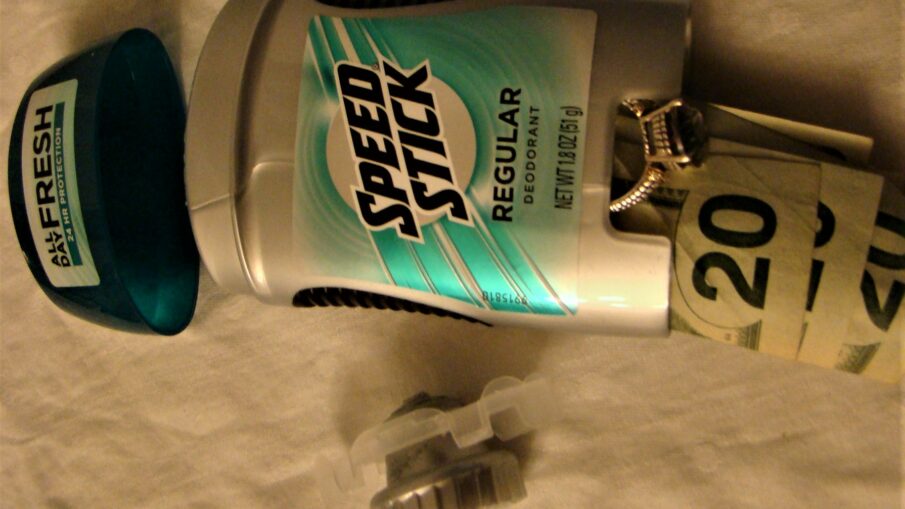Thefts in hotel rooms are hard to quantify these days, but relatively easy to pull off. Travelers need a solid strategy to prevent becoming victims.
No separate reporting category for hotel theft exists. Sadly, many of these incidents go unreported. Innkeepers, ever mindful of their reputations, are reluctant to call the police and file reports.
In larger hotels, thieves pose as fake guests who work rooms when maid service has doors open. Since most people never see the maid, it’s easy enough for someone to say “oh, I forgot my key” when in fact they don’t belong there at all.
Frequently, the hotel staff is suspected in these cases, but seldom to blame. Few people want to risk losing a job over whatever benefit can be derived from someone’s stray cash on the night stand.
Many upscale hotels offer in-room safes. You pick a numerical access code and lock up the valuables. But these safes often have a default-open code for emergencies. It just takes a few seconds to open that door and slip out of the room with the contents.
Beyond hotels, what about luggage handlers who steal? Some travelers have taken to the idea of wrapping their checked bags in layers of plastic shrink wrap to discourage those behind the scenes who open an unlocked bag in search of valuables to pilfer.
Wherever a thief takes stock of your valuables, they are looking to grab something quickly and escape detection. They’ll also be looking at likely places for the storage of such things: zippered pockets in luggage, laptop bags, and yes, that room safe if they can get it to open.
An industry aiming to foil these thieves has sprung up in the past 20 years, and it provides yet another strategy for keeping valuables safe undetected.
Enter the diversion safe.
Hollow out an everyday item such as a hair brush, shaving cream can or a stick deodorant, and make it a place to stash valuables. While thieves undoubtedly know about these tricks, they usually don’t have time to consider them. They grab and go. Their moves are measured in convenience and quick, high-percentage success.
So your stick deodorant container, buried in your toiletry bag, probably won’t get their attention. But inside, you can keep money and valuable out of sight. Note that these products don’t usually come with locks. If they are discovered, you’re out of luck.
I purchased the “Speed Stick” diversion safe pictured above for $18 on Amazon.com. The manufacturer, JayCeeCo, also makes diversion safes that look like Lady Speed Stick deodorant, or like Chapstick dispensers. The labeling on the outside appears to a casual observer as a store-bought product. And yes, the top pops off to reveal actual deodorant that you can use a couple of times to make it look legitimate.
Just don’t try to turn the bottom knob to advance the deodorant stick. It won’t work. Instead, you pull down on that knob to remove a false bottom and reveal an inside compartment ready for your valuables.
Some might ask, “why purchase such a product?” What about fashioning a DIY diversion safe from an empty dispenser? Much would depend upon the time you have to do so and how legitimate the product will appear. Remember, it’s not tough to spot a phony.
A few more product notes: it will not hold a credit card, and small, loose items might need to be accompanied by cotton or a tissue to keep them from rattling around inside. I folded three $20 bills twice and they fit easily, but this is not a place to hide huge wads of cash.
In short, this is not a foolproof solution to the problem of travel theft. But it could be one component of a multi-part strategy to keep your valuables safe:
- Always choose a hotel in a safe location that takes proper security precautions
- Never display large amounts of cash or other valuables
- Always lock the deadbolt
- Do not hang the “make up this room” sign, as it is the first thing thieves use when spotting rooms that no one will occupy for a while
- Do you really need maid service today? If not, hang the “do not disturb” sign and leave the TV on to simulate occupancy
- Use the in-room safe after testing it for default-open codes such as 0000 or 1234
- Never leave anything unattended that you can’t replace easily — passports, heirlooms, and more
- Use a locked suitcase for storage, as it will at least slow down a would-be burglar
It is bad policy to travel with expensive items, but sometimes it can’t be helped. A laptop, for example, is worth more than its replacement price. You probably have valuable information stored there. So take it with you when you leave the room. Remember that in many states, a hotel is not liable for more than a fixed amount ($1,000 in California, for example) of guest losses.
It’s surprising that these precautions are needed in an age when surveillance cameras are everywhere and door locks are far more sophisticated. Use a surprising travel find such as a diversion safe to hide valuables in plain sight — one of those tricks that predates security technology but often proves quite effective.

